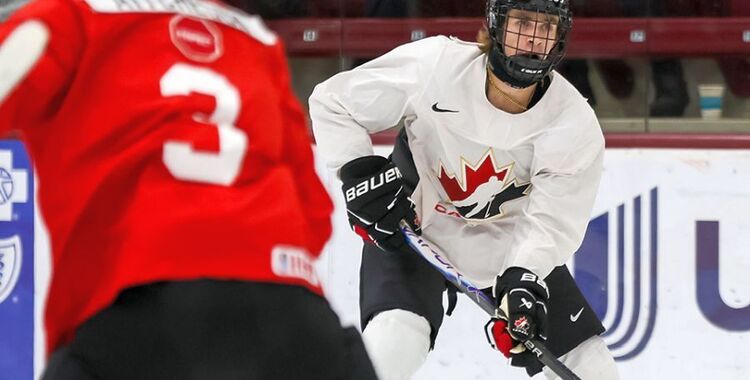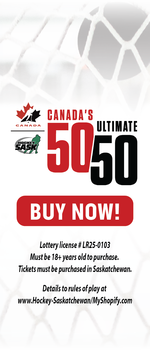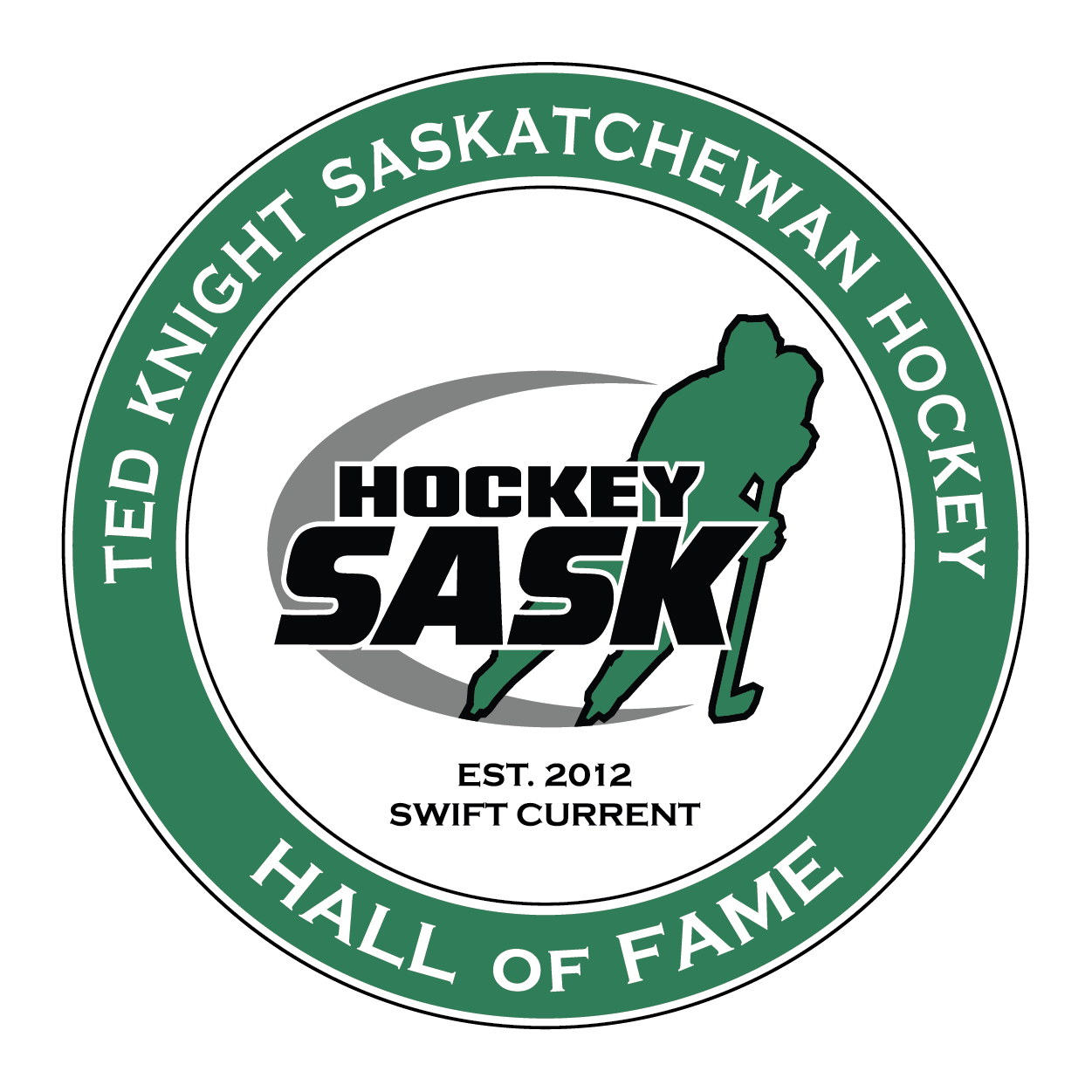Marc Habscheid Achieving a Rare International Triple-Double in 2006

Feb 20
2006
By Hockey Canada
When Marc Habscheid arrived in Turin as an associate coach with Canada’s Men’s Olympic Team, he made some Canadian hockey history. The former NHLer has achieved a rare ‘triple-double’ in international hockey.
The native and pride of the small town of Wymark, SK has now played AND coached for Canada at the World Junior Championship, the Olympic Winter Games the World Men’s Championship.
After playing at the 1982 World Juniors, the 1988 Olympics and the 1992 Men’s World Championship, Habscheid returned to coach the World Juniors in 2003, the Olympics in 2006 and the Men’s World Championship in 2005. In Canada, it’s a one-of-a-kind achievement. The IIHF does not have records on it for other countries, but all agree that it is certainly a very rare accomplishment.
Habscheid is quick to admit that the coaching bug came early on, as early when he played in the World Junior Championship in 1982, when he was part of Canada’s first Program of Excellence Team and of its first gold medal.
“When I was with the Juniors and Dave King, he really showed the technical aspect of coaching and that really interested. After that, I started keeping books and notes on coaching. It really interested me, that side of it. As I went on, I started to take my levels, even when I was playing, because you can’t play forever. You’ve got to plan for life after playing.”
And the interest never left him, while he was playing 11 seasons in the NHL.
“I don’t know if it was a goal, but it was an interest. I just wanted to nurture the interest until I was done playing and then I took a job (coaching junior A hockey) in Melfort, Saskatchewan. I really liked it then, and I knew that I had a really good passion for it and I knew that’s what I wanted to do.”
All three times that Habscheid played for Canada, his coach was Dave King. And while he readily admits that King had a very large influence on his coaching, he thinks that every coach he has had has played a role in his evolution into coaching.
“I think all of my coaches were (a big influence). He (Dave King) was obviously a big influence, but all of them were, just for the fact that there’s no book on the right way to coach or the wrong way to coach. My playing career, I moved to a lot a different places, had a lot of different coaches and I tried to draw a bit from all of them.”
It has been an adjustment. Going from being a player to being a coach is not the easiest of transitions for many. And for Habscheid, the difference lies in the relationship with the players.
“You love being around the guys (as a player). As a coach, you can’t. You can still talk to the guys, but you’re not a player, you’re a coach. There’s a difference there. There’s nothing like being with a group of teammates with one common goal, but coaching is the closest thing to playing. That certainly helps.”
His favourite part of coaching?
“You always see the technical side, but no matter what, it’s motivating people. It’s getting people to play as a unit and play as a team which is the most intriguing. And then you have to support that with the technical aspect. It’s all rolled into one. But no matter what, it’s about people.”
Hasbcheid on the biggest difference he has seen from the 1988 Olympics as a player to now, and the 2006 Olympics.
“The fall of the Iron Curtain, the East Block, has really changed things. Now, it’s more of a hybrid game. Back then, it was the East Block had there way, and it was almost a mysterious game because it was the height of communism. Now, there’s a lot of integration between systems and it’s a hybrid game, and there’s not a lot of secrets on both sides.”
Related Articles
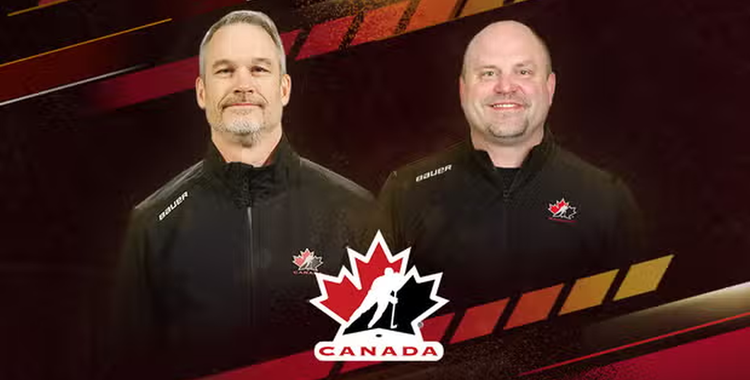
Canadian Coaches Named for 2025 Junior A World Challenge

Hockey Saskatchewan Recognizes 11.4 and 11.5 Maltreatment Awareness Days

Hockey Saskatchewan Membership Presentation: November 2025 – WATCH
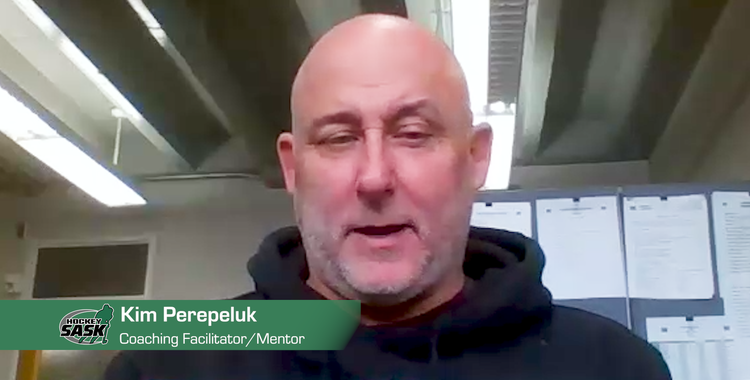
Around the Rink: Body Checking with Kim Perepeluk – WATCH
